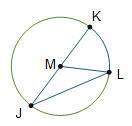
Advanced Placement (AP), 18.03.2021 09:00 PurpleAndBlue
AP Government questions. Any unrelated answer is getting deleted.
1. In 1928, during a period of fervent Christian Fundamentalism, the Arkansas state legislature passed a statute prohibiting the teaching of human evolutionary theory in public schools. The law made it unlawful for any teacher or other instructor in any university, college, public school or other institution of the state to teach the theory or doctrine that mankind ascended or descended from a lower order of animals. Teachers or professors who violated the law were subject to fines and dismissal by the state.
Susan Epperson, a 10th grade biology teacher in Little Rock, sued the state of Arkansas, challenging the constitutional authority of the state to enact such a restriction on religious grounds. In Epperson v Arkansas (1968) the court sided unanimously 9-0 with Epperson stating that the state government may not require curricula to align with the views of any particular religion. The court stated “The overriding fact is that Arkansas’ law selects from the body of knowledge a particular segment which it proscribes for the sole reason that it is deemed to conflict with a particular religious doctrine; that is, with a particular interpretation of the Book of Genesis by a particular religious group. [T]he state has no legitimate interest in protecting any or all religions from views distasteful to them.”
Identify a constitutional clause that is common to both Engel v Vitale (1962) and Epperson v Arkansas (1968).
Explain how the facts of Engel v Vitale and the facts of Epperson v Arkansas led to a similar holding in both cases.
Explain how an interest group could use the decision in Epperson v Arkansas to advance their agenda.
2. Gregory Lee "Joey" Johnson, then a member of the Revolutionary Communist Youth Brigade, participated in a political demonstration during the 1984 Republican National Convention in Dallas, against the Reagan Administration and certain companies based in Dallas. When the demonstrators reached Dallas City Hall, Johnson poured kerosene on an American flag and set it on fire while the crowd chanted and sang phrases critical of the United States and the Reagan Administration. No one was hurt, but some witnesses to the flag burning said they were extremely offended. Johnson was charged with violating a Texas law that prohibited the “desecration of a venerated object.” He was convicted, sentenced to one year in prison, and fined $2,000.
Johnson challenged the constitutionality of the law he was charged under, claiming it was a violation of his civil liberties. In the case Texas v Johnson (1989) the court sided 5-4 with Johnson stating that the government cannot limit civil liberties based solely on the venerated and honored nature of the American Flag. "Occurring as it did at the end of a demonstration coinciding with the Republican National Convention, the expressive, overtly political nature of the conduct was both intentional and overwhelmingly apparent." The court concluded that, while "the government generally has a freer hand in restricting expressive conduct than it has in restricting the written or spoken word," it may not "proscribe particular conduct because it has expressive elements.”
Identify a Constitutional clause that is common to both Tinker v Des Moines (1969) and Texas v Johnson (1989)
Explain how the facts of Tinker v Des Moines and the facts of Texas v Johnson led to a similar holding in both cases
Explain how the court’s decision in Texas v Johnson would affect laws in 48 states that prohibited the intentional desecration of the flag or other national symbols

Answers: 2
Another question on Advanced Placement (AP)


Advanced Placement (AP), 23.06.2019 21:50
(i think the answer is c, can someone confirm if i’m correct? if not correct and i’ll mark you brainliest + 15 free points ) even when you have the right-of-way, you're responsible for before you drive forward. a. yielding to other road users b. honking to alert other road users c. making sure the path is clear d. flashing your headlights
Answers: 2

Advanced Placement (AP), 25.06.2019 09:00
4. when a child cries out during rough play, the caregiver should a. encourage the distressed child to fight back. b. respond immediately, since the behavior has changed to fighting. c. ignore it, because rough play is a natural part of children’s learning. d. ignore the request for unless there has been an injury. i need answer
Answers: 1

Advanced Placement (AP), 26.06.2019 22:30
When members of congress must vote on a bill that is nonideological of one on which they have no specific position what are the most powerful influences
Answers: 1
You know the right answer?
AP Government questions. Any unrelated answer is getting deleted.
1. In 1928, during a period of fe...
Questions

Mathematics, 10.02.2021 02:20

English, 10.02.2021 02:20


Mathematics, 10.02.2021 02:20

History, 10.02.2021 02:20

Biology, 10.02.2021 02:20

Mathematics, 10.02.2021 02:20


Mathematics, 10.02.2021 02:20

English, 10.02.2021 02:20



Mathematics, 10.02.2021 02:20




Mathematics, 10.02.2021 02:20

History, 10.02.2021 02:20

History, 10.02.2021 02:20

Chemistry, 10.02.2021 02:20




